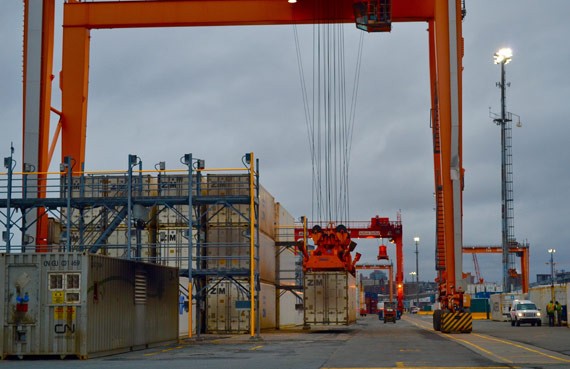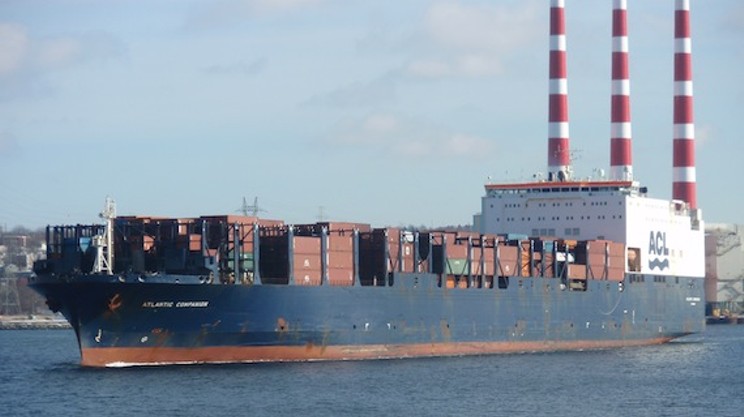In the early hours of October 27, as Sharon and Wayne McBrien slept, someone crept around their Toronto property. In shadow and silence, the thief pulled open the door of their Lexus SUV, climbed in and drove off. That morning, the McBriens would wake to a missing car, a long public transit ride to work and a shit-storm of insurance claims.
“When I phoned them to report it stolen,” says Wayne McBrien, “the police officer said to me, ‘It’s probably in a shipping container and it’s gone to Africa,’ or whatever.”
Two weeks later on November 11, the McBriens received a call from their claims adjuster, letting them know their car had been recovered in a shipping container in Halifax, alongside three other vehicles destined for Africa.
The couple’s car had become one of over 500 high-end vehicles stolen in the same way, by the same sophisticated crime organization—a group with links to the infamous Black Axe organization from Nigeria that has laundered $5 billion globally. It operates through a chain of inside jobs, with help from workers at the rail yards, truck yards, shipping companies, blacksmiths and Service Ontario.
An investigation into this string of Toronto carjackings began in April of this year. It was named project CBG, incepted after a series of high-end luxury cars were stolen in similar ways in the same affluent areas—all with a pre-programmed key. Originally, the perps used stolen keys obtained prior to the new car arriving at the dealership, but eventually they began using laptops to reprogram blank keys in minutes (sometimes seconds) with Vehicle Identification Numbers they either captured or purchased for $200 a pop.
McBrien recalls seeing a woman sitting outside of their home for days prior to the robbery, sometimes for over three hours at a time.
“I got a feeling maybe that’s what happened,” he says. “She waited for me to jump in my car, then she captured the code, and then they made a key.”
More than 50 vehicles stolen from the Toronto area were seized in Halifax ports. The Nova Scotia RCMP had a hand in “examining containers, identifying stolen vehicles, and gathering and analyzing forensic evidence,” says constable Mark Skinner.
In a cross-platform effort, the police were able to make 18 arrests, lay 640 criminal charges and recover 200 of the 500 cars stolen this year. The number of vehicles burgled amounted to between 10 and 15 percent of all car thefts in the Greater Toronto Area and a whopping $30 million.
McBrien’s insurance company originally told him he’d need to go and get his car from Halifax, but agreed to ship it back to him when he balked at that trip. When he was finally able to pick up the car from the local Lexus dealership in Toronto, McBrien found it had a rough journey: sunroof and back window broken, body dented and scratched to hell.
With no glass or skid marks in the driveway, McBrien’s best guess is the car was damaged inside or on its way into the shipping container.
According to the Insurance Bureau of Canada’s annual report on stolen cars, there were nearly 74,000 Canadian vehicles stolen in 2014. A major chunk of those would have been heading to overseas ports in west Africa and eastern Europe.
The IBC also reports there’s been an increase over the last year in shipping containers found at Halifax and Montreal ports containing cars stripped and dismantled in an effort to try and fool customs agents.

















